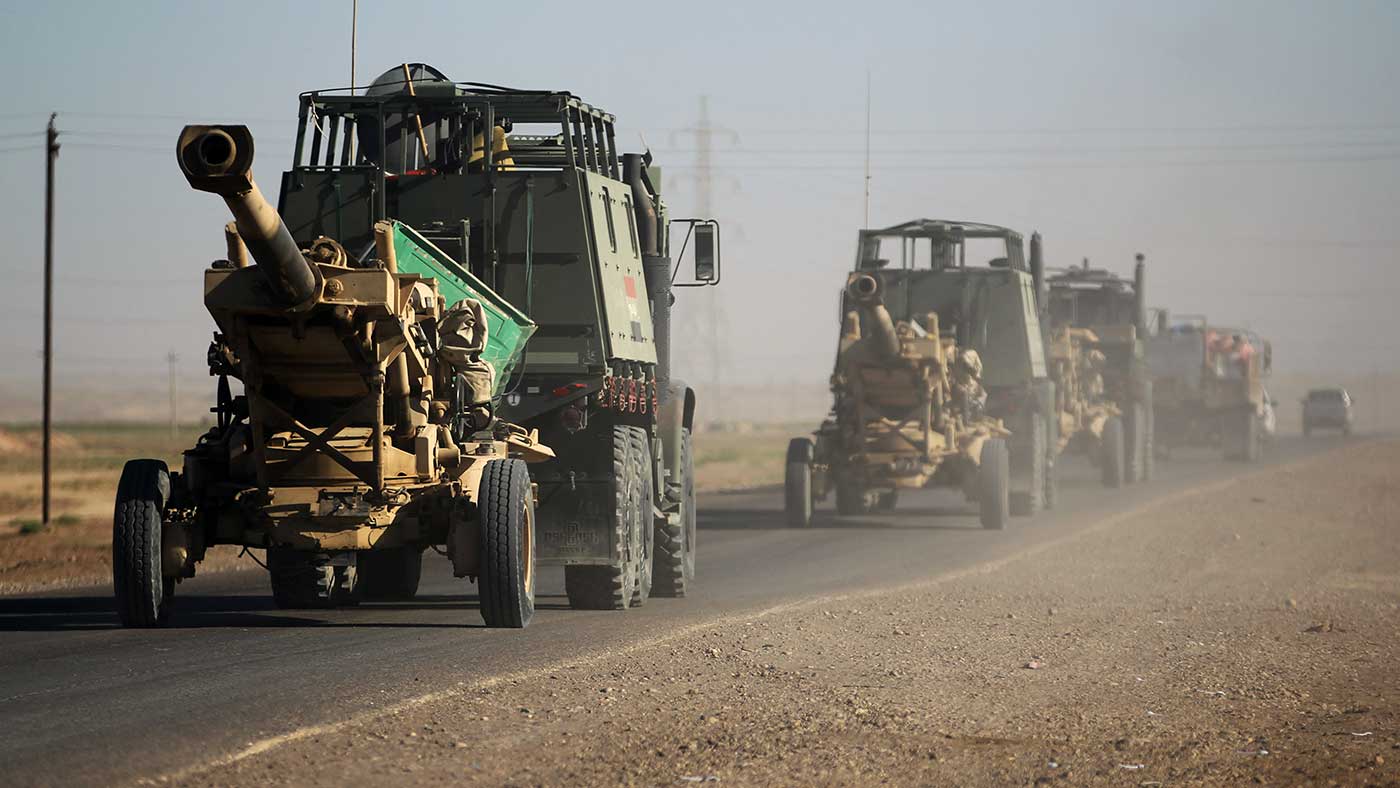Kurdish forces abandon disputed oil fields
Withdrawal follows Iraqi government taking back control of Kirkuk

A free daily email with the biggest news stories of the day – and the best features from TheWeek.com
You are now subscribed
Your newsletter sign-up was successful
Kurdish forces have abandoned large areas of northern and eastern Iraq they had controlled since the fall of Saddam Hussein in 2003, in the wake of Iraqi government forces taking control of the oil-rich city of Kirkuk.
“The vastly outnumbered Kurdish forces, known as the Peshmerga, appeared to have bowed to demands from the central government that they hand over areas outside the Kurds' autonomous region, including territory seized from the Islamic State group in recent years,” ABC News says.
The towns abandoned by Kurdish forces loyal to the de facto Kurdish president, Massoud Barzani, include Bashiqa, Khanaqin and Sinjar.
The Week
Escape your echo chamber. Get the facts behind the news, plus analysis from multiple perspectives.

Sign up for The Week's Free Newsletters
From our morning news briefing to a weekly Good News Newsletter, get the best of The Week delivered directly to your inbox.
From our morning news briefing to a weekly Good News Newsletter, get the best of The Week delivered directly to your inbox.
“The withdrawals on Tuesday shattered ambitions to use a referendum on independence held on 25 September to consolidate a Kurdish hold on towns seized in the three-year war against Islamic State,” The Guardian says.
Barzani has faced criticism from the Kurdish people over the referendum, which appears to have been the driving force behind the latest push by the Iraqi government to retake the disputed territories.
Iraqi forces also announced yesterday that they had retaken the oil fields of Bai Hassan and Avana near Kirkuk, “potentially depriving the Kurdish region of its main source of revenue”, the Washington Post says. Baghdad has previously accused the Kurds of illegally exporting oil.
The disputed oil fields were controversially included in the independence referendum, despite lying outside of the established Kurdistan region.
A free daily email with the biggest news stories of the day – and the best features from TheWeek.com
-
 How the FCC’s ‘equal time’ rule works
How the FCC’s ‘equal time’ rule worksIn the Spotlight The law is at the heart of the Colbert-CBS conflict
-
 What is the endgame in the DHS shutdown?
What is the endgame in the DHS shutdown?Today’s Big Question Democrats want to rein in ICE’s immigration crackdown
-
 ‘Poor time management isn’t just an inconvenience’
‘Poor time management isn’t just an inconvenience’Instant Opinion Opinion, comment and editorials of the day
-
 Epstein files topple law CEO, roil UK government
Epstein files topple law CEO, roil UK governmentSpeed Read Peter Mandelson, Britain’s former ambassador to the US, is caught up in the scandal
-
 Iran and US prepare to meet after skirmishes
Iran and US prepare to meet after skirmishesSpeed Read The incident comes amid heightened tensions in the Middle East
-
 Syria’s Kurds: abandoned by their US ally
Syria’s Kurds: abandoned by their US allyTalking Point Ahmed al-Sharaa’s lightning offensive against Syrian Kurdistan belies his promise to respect the country’s ethnic minorities
-
 Israel retrieves final hostage’s body from Gaza
Israel retrieves final hostage’s body from GazaSpeed Read The 24-year-old police officer was killed during the initial Hamas attack
-
 China’s Xi targets top general in growing purge
China’s Xi targets top general in growing purgeSpeed Read Zhang Youxia is being investigated over ‘grave violations’ of the law
-
 Panama and Canada are negotiating over a crucial copper mine
Panama and Canada are negotiating over a crucial copper mineIn the Spotlight Panama is set to make a final decision on the mine this summer
-
 Why Greenland’s natural resources are nearly impossible to mine
Why Greenland’s natural resources are nearly impossible to mineThe Explainer The country’s natural landscape makes the task extremely difficult
-
 Iran cuts internet as protests escalate
Iran cuts internet as protests escalateSpeed Reada Government buildings across the country have been set on fire